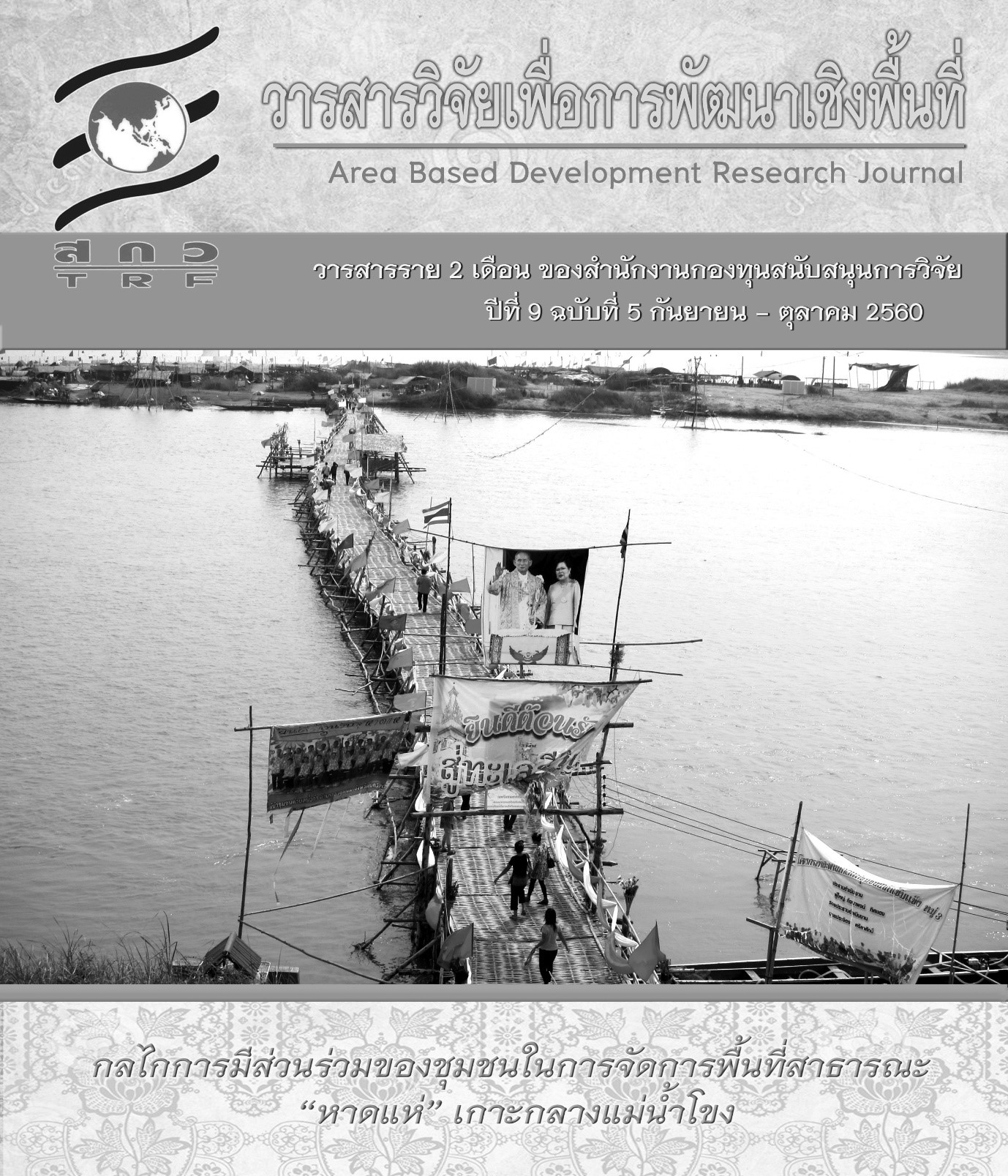กลไกการมีส่วนร่วมของชุมชนในการจัดการพื้นที่สาธารณะ “หาดแห่” เกาะกลางแม่น้ำโขง
Main Article Content
Abstract
งานวิจัยนี้มีวัตถุประสงค์เพื่อนำเสนอกลไกการมีส่วนร่วมของชุมชนในการจัดการพื้นที่สาธารณะ “หาดแห่” ที่ตั้งอยู่ระหว่างบ้านน้ำก่ำ ตำบลน้ำก่ำ อำเภอธาตุพนม จังหวัดนครพนม และบ้านท่าค้อ แขวงคำม่วน สาธารณรัฐประชาธิปไตยประชาชนลาว เป็นการวิจัยเชิงปฏิบัติการแบบมีส่วนร่วม (Participatory action research หรือ PAR) เครื่องมือที่ใช้ในการเก็บรวบรวมข้อมูล ได้แก่ การสัมภาษณ์เชิงลึก การประชุมกลุ่มย่อย และการจัดเวทีแลกเปลี่ยนเรียนรู้ ผลการวิจัยพบว่า การบริหารจัดการพื้นที่สาธารณะ “หาดแห่” มีการดำเนินงานที่ไม่ซับซ้อน สามารถวางแผนการใช้ประโยชน์พื้นที่ทั้งด้านการเกษตร การประมง และการท่องเที่ยวโดยกลุ่มและสมาชิกชุมชนเป็นหลัก อาศัยความสัมพันธ์แบบเครือญาติ มีเทศบาลตำบลน้ำก่ำสนับสนุนการบริหารจัดการพื้นที่ตั้งแต่ปี พ.ศ. 2556 จนถึงปัจจุบัน โดยมีกลไกการบริหารจัดการพื้นที่ 2 รูปแบบ คือ 1) กลไกที่เป็นทางการ หรือกลไกเชิงสถาบัน ที่มีการจัดตั้งคณะกรรมการในการบริหารจัดการพื้นที่เป็นลายลักษณ์อักษร 2) กลไกที่ไม่เป็นทางการเป็นการจัดการพื้นที่ผ่านเวทีประชาคมหมู่บ้านให้การยอมรับผู้นำที่ไม่เป็นทางการ เพื่อร่วมกันกำหนด กฎ กติกา รวมถึงสิทธิ์การใช้ประโยชน์พื้นที่ผ่านกระบวนการมีส่วนร่วมของชุมชน 4 ขั้นตอน คือ 1) การมีส่วนร่วมในการวางแผน 2) การมีส่วนร่วมในการดำเนินการ 3) การมีส่วนร่วมในการจัดสรรผลประโยชน์ และ 4) การมีส่วนร่วมในการประเมินผล
Article Details
Area Based Development Research Journal values copyright protection and licensing to safeguard author rights and facilitate the appropriate dissemination of research. Our policies ensure openness, accessibility, and attribution. Authors retain copyright ownership, and articles are published under a Creative Commons Attribution License (CC BY), allowing sharing, adaptation, and proper attribution. Authors have the freedom to publish under the CC BY license, granting broad reuse and distribution permissions. The journal supports posting articles on third-party repositories, adhering to institutional and funding restrictions. Author guidelines detail copyright and licensing requirements, empowering authors with knowledge about their rights and responsibilities. These policies cultivate an environment of collaboration, openness, and responsible sharing, benefiting authors and the research community while honoring intellectual property rights.


